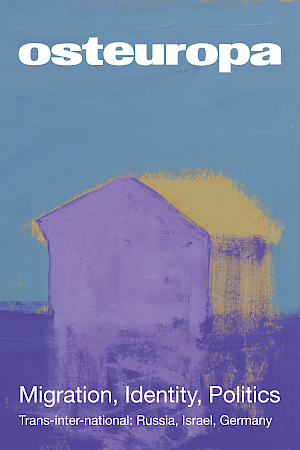Generation 1.5 of Russian-Speaking Immigrants in Israel and in Germany
An Overview of Recent Research and a German Pilot Study
Abstract
This chapter offers a comparative overview of immigrant trajectories and integration outcomes of Russian-Jewish youths (the so-called 1.5 generation) who immigrated to Israel and Germany with their families over the last 25 years. After introducing the concept of segmented assimilation, I compare Israeli and German reception contexts and policies and tap on the generic features of the 1.5 immigrant generation. Next I overview the Israeli research findings on Russian Israeli 1.5ers – their schooling, social mobility, cultural and linguistic practices, parents’ role in their integration, and juxtapose them with (very limited) German data. The final section presents the initial findings of my on-going study among Russian Jewish young adults living in three German cities. The interviews with 18 men and women, mostly successful professionals or entrepreneurs, indicate that their upward social mobility was facilitated by the continuous welfare support of their families, school integration programs, and low financial barriers to higher education. Despite common occupational and social down-grading of the parental generation in both countries, the 1.5-ers in Israel had to struggle harder to overcome their inherent immigrant disadvantage vs. native peers to access good schools and professional careers.
(Special Issue, S. 61–87)



